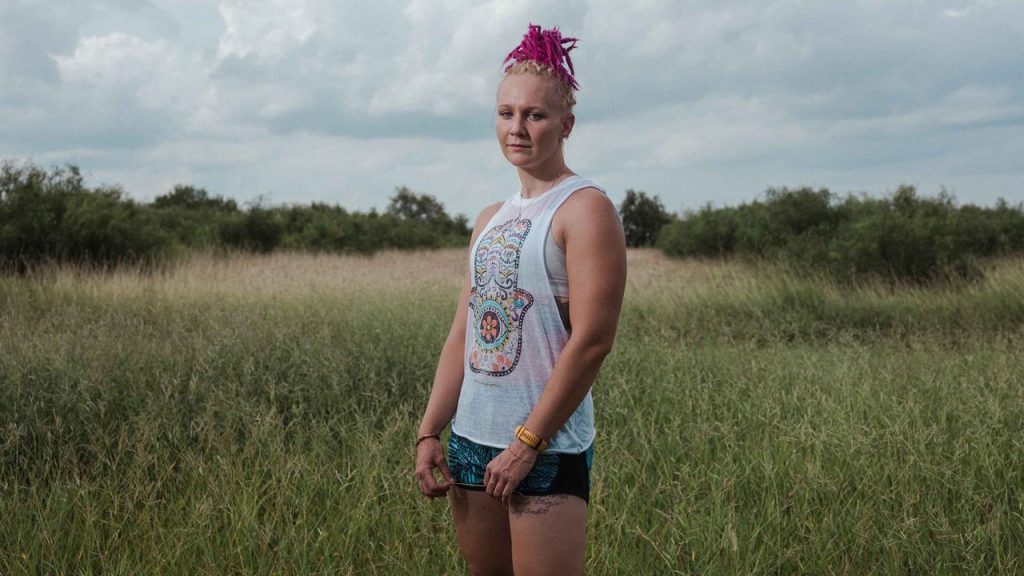At the outset of 2017, I was 25 years old, living in Georgia, and excited about a new career.
The year ended with me in handcuffs and shackles. I would receive the longest federal prison sentence ever imposed on an American citizen for releasing government information to the media.
That wasn’t quite my plan.
There is no typical whistle-blower. Sometimes people like to group me with other individuals who have leaked classified national security information to the media: Daniel Ellsberg, Edward Snowden, John Kiriakou, Thomas Drake, and Chelsea Manning are the best known. I have spoken with Ellsberg, Drake, Manning, and other whistle-blowers at various points in my post-leak life. I have come to believe that far more separates us than unites us. The leakers I have spoken with have different personality types and come from radically diverse backgrounds. There are only two things we have in common. The first is that we revealed secrets, but we have plenty of company in that. The other thing uniting us, which is far less common, is that we got caught.
I deeply believed in America’s national security system; I never wanted to destroy it. Following six years in the military, I received the Air Force Commendation Medal for “provid[ing] over 1,900 hours of enemy intelligence exploitation and assist[ing] in geolocating 120 enemy combatants during 734 airborne sorties [air missions].” Exactly what I did to earn that commendation is something I am unable to reveal for legal reasons. I can only quote this NSA-approved Commendation Medal certificate and leave the rest to interpretation. My commendation goes on to say: “She facilitated 816 intelligence missions, 3,236 time sensitive reports, and removing more than 100 enemies from the battlefield. Furthermore, while deployed to support Combatant Commander’s requirements, Airman Winner was appointed as the lead deployment language analyst, producing 2,500 reports, aiding in 650 enemy captures, 600 enemies killed in action and identifying 900 high value targets.”
That’s a lot of military-speak, so I’ll translate: I helped kill a lot of human beings. Hundreds, possibly thousands. I developed post-traumatic stress disorder doing it. As a child and young adult, I dreamed of receiving awards for helping people, or saving them. But that wasn’t how it turned out. I helped the United States government kill people. I was good at it. So good that they gave me an award for it. But then I shared some information with the American people, and the US government felt that was a much worse thing to do. They decided I was an enemy of the country. My Pokémon-loving, yoga-practicing, vegetable-subsisting complex personality got erased. To quote my mother’s sardonic comment to a reporter about the chasm separating who I really am from the traitor the government claimed I was: “The world’s biggest terrorist has a Pikachu bedspread.”
Between Christmas 2017 and New Year’s, on a run just a mile from my parents’ home, I received a call from Pluribus International Corporation, a Defense Department contracting company to which I had submitted my résumé. They were offering me a one-year contract. Desperate to fill my days with meaning, I accepted immediately, even when I wasn’t sure if the job was back in Maryland or in Augusta, where I had just recently moved all my possessions into a rental home. Luckily it turned out to be in Augusta.
A few weeks later, on February 9, orientation began. Pluribus operated within the John Whitelaw Building, in Fort Gordon. (Fort Gordon was named after a Confederate general, one of many official government properties honoring the traitorous Confederacy. It was renamed Fort Eisenhower in 2023.) With thirty thousand military and civilian workers, it looks like any other military base, but it’s all about eavesdropping: it hosts the United States Army Signal Corps, the United States Army Cyber Command, and the Cyber Center of Excellence. The Whitelaw Building hosts NSA Georgia. Unlike NSA Maryland, it’s a gorgeous, ultramodern facility. A $300 million one, in fact, reflecting the enormous post-9/11 infusion of cash into cyber-surveillance. But these immaculate, gleaming buildings with high-tech spying equipment are surrounded by horse stables and trails because Fort Eisenhower is an army base that hosts ballistics and infantry training. The entire place feels like a resort in the middle of the brush.
Shortly before I began, Trump was sworn in as president. His press secretary, Sean Spicer, went up in front of the entire world and made the laughable claim that the crowd that attended the inauguration had been the largest at any inauguration ever. The way he could just say it, the way he could lie so brazenly and openly, seemed like the starting whistle in a race to fascism. This was how Trump’s whole presidency was going to be, I realized. The contempt he showed for foreigners, especially people of color, refugees, and those from developing countries, made me recoil.

